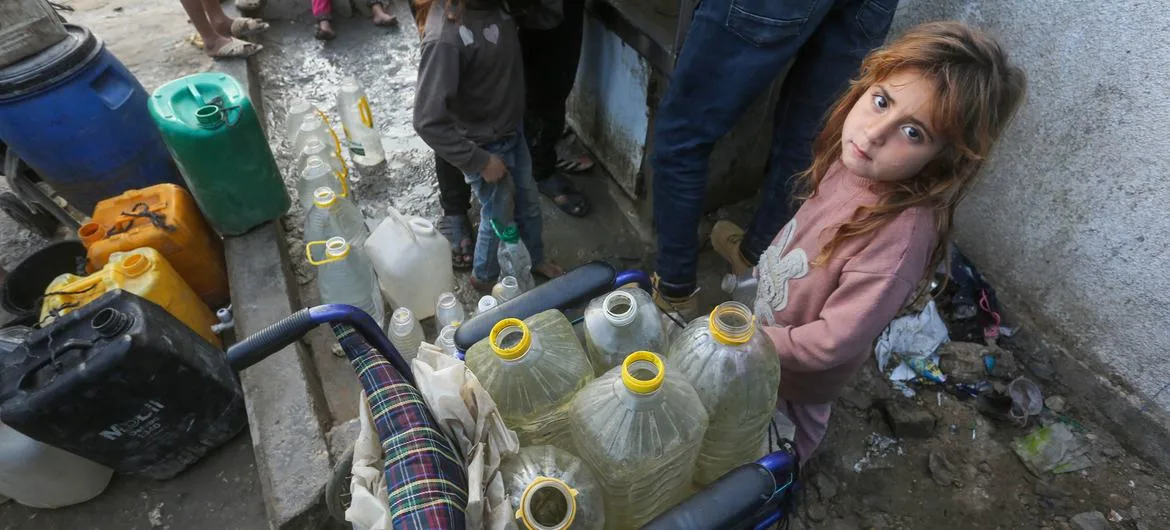TEL AVIV - A cease-fire agreement between Israel and Hamas in the Gaza Strip went into effect Sunday with a nearly three-hour delay, ending a 15-month war that has brought devastation and sweeping political changes to the Middle East. Residents and a health worker in Gaza said no new fighting or military strikes were heard for about half an hour before the ceasefire was finally imposed. Palestinian health workers said Israeli airstrikes and artillery attacks killed 13 Palestinians between 0630 GMT, when the ceasefire was due to take effect, and 0915 GMT, when it actually went into effect.
Israel blamed Hamas for the delay after the Palestinian militant group failed to provide a list of names of the first three hostages who were to be released under the agreement. Hamas attributed the delay to "technical" reasons, without specifying what those reasons were. A Palestinian official, speaking on condition of anonymity, said the delay was because the mediators demanded 48 hours of "calm" before a ceasefire could be implemented. However, continued Israeli strikes up to the deadline made it difficult to submit the list.
Two hours after the deadline, Hamas said it had sent a list of names, the receipt of which was confirmed by Israeli officials. Hamas named the hostages it was to release on Sunday as Romi Gonen, Doron Steinbrecher and Emily Damari.
Israel did not immediately confirm these names The much-anticipated ceasefire agreement could help end the war in Gaza, which began after Hamas, which controls the small coastal territory, attacked Israel on 7 October 2023, killing some 1 200 people, according to Israeli authorities. The Israeli response turned much of Gaza into rubble, resulting in nearly 47,000 Palestinian deaths, according to Gaza health officials. The war has also set off a confrontation across the Middle East between Israel and its arch-enemy Iran, which supports Hamas and other anti-Israel and anti-American paramilitary groups across the region.
Israeli forces have begun withdrawing from the Rafah areas of Gaza to the Philadelphi Road along the Egypt-Gaza border, pro-Hamas media reported early Sunday morning. The three-stage ceasefire agreement followed months of intermittent negotiations brokered by Egypt, Qatar and the United States, and was concluded just before the inauguration of US President-elect Donald Trump on January 20.
Its first phase will last six weeks, during which 33 of the remaining 98 hostages - women, children, men over 50, the sick and wounded - will be released in exchange for nearly 2 000 Palestinian prisoners and detainees. Among them are 737 men, women and juvenile prisoners, some of whom are members of militant groups convicted of attacks that have killed dozens of Israelis, as well as hundreds of Palestinians from Gaza detained since the outbreak of the war.
The first three hostages are women who are expected to be released through the Red Cross on Sunday. In exchange for each of them, 30 Palestinian prisoners held in Israeli jails are to be released. Under the terms of the deal, Hamas would inform the International Committee of the Red Cross (ICRC) of the meeting point inside Gaza, while the ICRC would head to the site to pick up the hostages, an official involved in the process told Reuters.
But what comes next in Gaza remains unclear, in the absence of a comprehensive agreement on the enclave's post-war future, the reconstruction of which will require billions of dollars and years of work. And although the stated aim of the ceasefire is to end the war completely, it could easily fall apart again. Hamas, which has controlled Gaza for nearly two decades, has survived despite losing its top leadership and thousands of fighters.
Israel has vowed not to allow Hamas to return to power, and has cleared large areas inside Gaza, a move widely seen as a move to create a buffer zone that will allow its troops to intervene freely against threats in the enclave. In Israel, the return of the hostages may defuse some of the public anger against Netanyahu and his right-wing government over the October 7 security failure.
news.cgtn.com / photo: un.org / gnews.cz-jav



